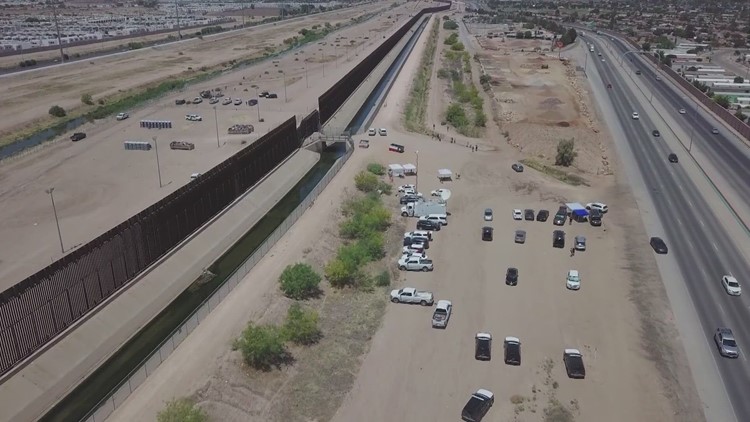DALLAS — It’s not just a Texas problem.
Or even just an American problem.
The entire western hemisphere is facing a humanitarian crisis with millions of migrants on the move.
“And it's not just folks leaving places that you think of that are dysfunctional, like Venezuela or Haiti. It's people leaving other countries as well. And they're trying to find their way to safety and security and just a calm living environment,” Laura Collins told us on Y’all-itics.
Laura Collins has studied immigration for a decade at the George W. Bush Institute in Dallas, where she is currently the director of the Bush Institute-SMU Economic Growth Initiative.
She joined the Jasons on Y’all-itics to discuss why Title 42 appears to have ended with a whimper, not the expected bang.
The pandemic-era health policy that allowed authorities to quickly expel migrants, even asylum seekers, is no longer in place. And the predicted migrant surge and chaos along our southern border simply has not happened. In fact, the U.S. Department of Homeland Security says the number of illegal crossings has dropped by more than half.
Listen to the full episode:
Collins says Title 42 was bad for humanitarian reasons because it never allowed migrants to request asylum and protection.
And she says it was bad on the enforcement side because it lacked teeth.
Before Title 42, migrants caught illegally crossing the border were punished and couldn’t enter the country for at least five years if they weren’t granted asylum.
Now that the pandemic-era rule is gone, the penalty is back, and Collins says that will keep some people away.
“So, when we go back and we remove Title 42 from the equation, now, we actually have enforcement mechanisms with teeth because people have an actual penalty for crossing now,” Collins explained. “In addition, we've opened ports of entry more or less to people who want to seek protection, who need protection, who now, they have the ability to ask for that. So, we've gotten back to normal.”
Collins also recently took part in a white paper about smart border policy for the 21st century, which she says needs to be much broader than simply thinking about physical barriers and pure migration numbers.
And she explained to us why it’s so difficult, and takes so long, to find compromise on border policy.
“Congress doesn't like to do the part that's probably the hardest. Everyone thinks it's the border. Everyone thinks it's about the undocumented. The hardest part is the future flows. Who are you bringing in? Where are they coming from? And how many of them are we going to do? And so, that's a hard one to get to and that's what you see in all those fights across history,” said Collins.
Collins helps us strip the politics out of this issue, so you’ll want to listen to the entire episode. And no matter how you feel about the border, this episode of Y’all-itics is an eye-opener. Cheers!



